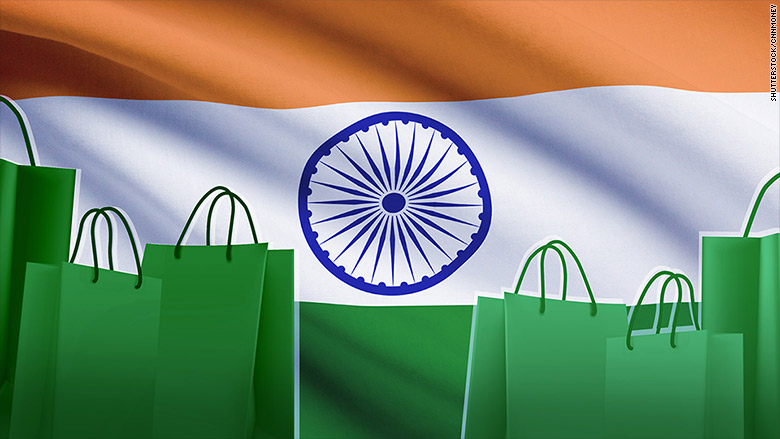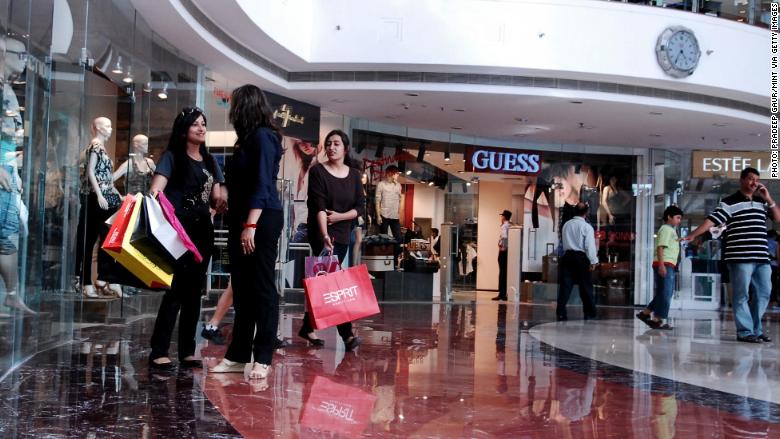
India has just made it much easier for brands such as Apple (AAPL) and Gap (GPS) to sell to its 1.2 billion people.
The Indian government announced Wednesday that global single-brand retailers will no longer need its permission to own and operate stores in the country.
Foreign companies previously needed government approval to own more than 49% of an Indian retail operation, leading many to partner with Indian companies or rely on local distributors and franchises.
Under Prime Minister Narendra Modi, the government has been trying to make it easier to do business in India by relaxing some regulations and changing its tax system to create a single, national market.
Those efforts appear to be paying off. Foreign investment into India hit a record high of about $60 billion in the fiscal year to March 2017, the government said Wednesday.
Related: Trump's emerging markets guru likes India's moves
The relaxation of restrictions on retail investment could benefit the Indian economy in other ways.
"Allowing foreign brands to directly invest in retailing in India will improve customers' shopping experience and push Indian retailing companies to upgrade their services and offerings," Ahmed Timoumi, a professor of marketing at the Indian School of Business, told CNNMoney.
"This can also be an opportunity for Indian manufacturers since these retail brands might consider outsourcing manufacturing to local players," he added.

A market worth $1 trillion?
India's retail market presents a compelling opportunity. It is currently worth around $600 billion, according to a 2017 report by consultancy PwC. By 2020, Indian shoppers could be spending $1 trillion year, it added.
Organized retailers currently account for just 8% of the market, meaning India presents established global brands with "tremendous scope for growth," PwC said.
Despite the new openness, foreign retailers still have to jump through a number of hoops.
The new policy, for instance, does not mention companies that sell many brands under one roof. That would appear to exclude companies such as Walmart (WMT).
The Arkansas-based retail giant has been pushing to open its signature stores in India for years, but government rules have restricted its presence to 21 wholesale outlets across the country. Walmart did not immediately respond to a request for comment on Wednesday.
Related: Shop at H&M or Walmart? You could be helping India's rural women
"There are likely to be other structural or longer term constraints that would prevent a really sharp inflow of [foreign investment]," said Shilan Shah, India economist at Capital Economics. Shah cited like land acquisition and labor as areas where significant red tape still exists.
"Reforms are still needed in order for [investment] to pick up really substantially," he added.

Apple, which should benefit from the new regulations, faces other official hurdles, chief among them a requirement that foreign retailers must source 30% of their products locally. It began manufacturing some iPhones at a plant in Bangalore in May last year.
Apple did not respond to requests for comment on Wednesday.


